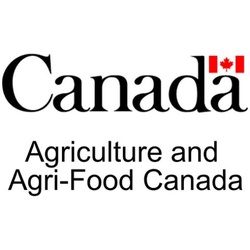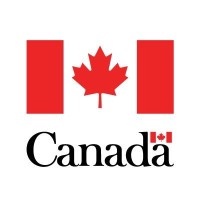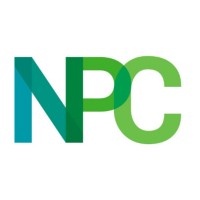
CFIN Food Innovation Challenge
At a glance
- Maximum amount : 2,000,000 $
- Minimum amount : 20,000 $
- Up to 50% of project cost
- Open Date : February 13, 2023
- Closing date : October 29, 2023
- Manufacturing
- Canada
- All legal structures
- $ 50,000,000 maximum revenue
- 500 employees maximum
- Canadians
Overview
Get funding for a collaborative industry-led project that will enhance the food innovation community and generate a significant economic impact.
Activities funded
Eligibility
The eligibility criteria for the Canadian Food Innovation Network (CFIN) grant vary according to each unique stream. Here are the detailed eligibility criteria for both the Innovation Booster stream and the Challenge stream:
- CFIN Innovation Booster stream:
- Businesses need to have less than 500 full-time equivalent (FTE) employees.
- Applicants should have fewer than $50 million in taxed revenues from the company’s previous fiscal year.
- Applicants should be incorporated for more than one year or be a limited liability partnership (LLP). Two years of review engagement or audited financials are required as part of the application process.
- Successful applicants must be CFIN members (membership is free).
- CFIN Challenge stream:
- Applicants should be focused on, industry-led, collaborative initiatives.
- Should consist of an applicant willing to take the lead and collaborative partners that are also incorporated in Canada; all parties of the collaboration should be members of CFIN.
- At least one SME (fewer than 500 employees) with lower than $50 million gross revenues annually.
- At least two independent private sector companies.
- If a larger number of partners are included, a diversity of organizations, companies and SMEs, universities, colleges, research centers, etc. is encouraged.
- Research and development should be conducted at Technology Readiness Levels (TRLs) one to seven.
Who is eligible?
Yes, there are eligible types of companies for this grant, applicable under different streams based on specific criteria. Below is a summary of eligible companies followed by a detailed bullet point list.
- Businesses must have less than 500 full-time equivalent (FTE) employees.
- Must have fewer than $50 million in taxed revenues from the previous fiscal year.
- Should be incorporated for more than one year or be a limited liability partnership (LLP).
- Two years of review engagement or audited financials are required.
- Must be members of the Canadian Food Innovation Network (CFIN).
- Initiatives should be industry-led and collaborative.
- Should consist of one lead applicant and collaborative partners incorporated in Canada.
- All parties in the collaboration should be CFIN members.
- At least one SME with fewer than 500 employees and lower than $50 million gross revenue annually.
- Involvement of at least two independent private sector companies.
- Diverse partnerships including organizations, companies, SMEs, universities, colleges, and research centers are encouraged.
- Research and development should be conducted at Technology Readiness Levels (TRLs) one to seven.
Eligible expenses
The Canadian Food Innovation Network (CFIN) grant has eligible expenses for both its Innovation Booster stream and Challenge stream. These expenses include costs related to direct labor, materials, equipment, and specific activities aligned with the program's objectives.
- Direct labor
- Materials
- Equipment
- Industrial research for the discovery of knowledge aimed at developing new technology-driven products, processes, and services at early stage TRLs
- Advancement and development of new tech into product-specific applications at middle or late stage TRLs
- Projects may cover a broad range of TRLs through activities from research to near commercialization
Selection criteria
Here are the evaluation and selection criteria for the CFIN Innovation Booster stream and Challenge stream grants:
- Alignment with eligible activities in the specified research areas (Smart Product and Process Development, Food System Sustainability, Agile and Safe Supply Chains).
- Technology Readiness Levels (TRLs) one to seven.
- Company size: fewer than 500 full-time equivalent (FTE) employees for the Innovation Booster stream; collaborative initiatives with at least one SME for the Challenge stream.
- Taxed revenues: less than $50 million.
- Incorporation status: Incorporated for over one year (Innovation Booster) or collaborative and led by an organization incorporated in Canada (Challenge).
- CFIN membership status.
- Previous financial stability: Two years of review engagement or audited financials.
- Project cost and funding request compliance: up to 50% of eligible expenses within specified financial limits.
How to apply
Confirm Eligibility
- Ensure your business has fewer than 500 full-time equivalent employees.
- Check that your business's taxed revenues are under $50 million in the previous fiscal year.
- Your business should be incorporated for more than one year or be a limited liability partnership (LLP).
- Prepare two years of review engagement or audited financial statements.
- Confirm that you are a CFIN member (membership is free).
Define Project Scope
- Identify eligible activities focusing on TRLs one to seven.
- Ensure the project falls into one of the three research areas: Smart Product and Process Development, Food System Sustainability, or Agile and Safe Supply Chains.
Document Preparation
- Prepare detailed project proposal including objectives, methodology, and expected outcomes.
- Gather financial documents and any other supporting documentation.
Application Submission
- Submit the application through the CFIN portal or contact a CFIN team member for current intake details.
- Pay attention to any applicable deadlines and ensure all forms are duly filled out.
Review and Approval
- Your application will be reviewed by CFIN for eligibility and completeness.
- Be prepared to answer any follow-up questions from the reviewers.
- Upon approval, be ready to pay a 5% project management fee.
Project Execution
- Begin the project as per the approved scope and budget.
- Track expenses and milestones as per the project plan.
Reporting and Finalization
- Submit periodic and final reports detailing the progress and completion of the project.
- Ensure all financial reporting aligns with CFIN guidelines.
Additional information
Here are additional relevant details for this grant:
- The program is currently closed until 2025, and updates on funded projects will be provided.
Frequently Asked Questions about the CFIN Food Innovation Challenge Program
What is the CFIN Food Innovation Challenge?
How much funding can be received?
What expenses are eligible under CFIN Food Innovation Challenge?
What is the deadline to apply?
Is the CFIN Food Innovation Challenge a grant, loan, or tax credit?
Who are the financial supporters of the CFIN Food Innovation Challenge?
Who is eligible for the CFIN Food Innovation Challenge program?
Who can I contact for more information about the CFIN Food Innovation Challenge?
Where is the CFIN Food Innovation Challenge available?
More programs like this

Global Innovation Clusters
Innovation Canada
African Swine Fever Industry Preparedness Program (ASFIPP) - Welfare Slaughter and Disposal Stream
Agriculture and Agri-Food Canada (AAFC)
AgriScience Program – Projects
Agriculture and Agri-Food Canada (AAFC)
Green Industrial Facilities and Manufacturing Program — Energy Efficiency Solutions Track
Natural Resources Canada (NRCan)
Market Development Program for Turkey and Chicken
Agriculture and Agri-Food Canada (AAFC)
CFIN — Innovation Scouting Fund
Canadian Food Innovation Network (CFIN)
Fast-Track to Financing Program
Natural Products Canada (NPC)
Access to Talent Program
Natural Products Canada (NPC)
Proof-of-Concept Program
Natural Products Canada (NPC)